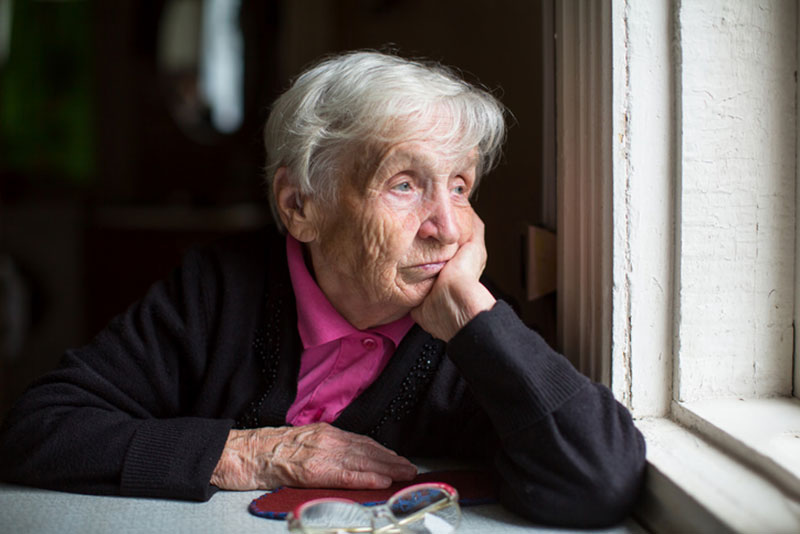
With short days and low light, the winter doldrums are common among seniors, but what happens when it’s more than just the blues?
After the busyness of the holidays, it’s not uncommon for the winter doldrums to emerge. Yet what might appear at first to be just a bit of boredom could in fact be something more serious that should be addressed.
Anhedonia is a or a loss of interest in activities that a person once enjoyed and is an indication of depression that is often overlooked in seniors. Anhedonia exhibits through symptoms such as:
- A need to self-isolate and avoid social activities and friendships
- A reduction in emotional abilities
- Unfavorable feelings directed towards either themselves or other people
It’s always a good idea to talk to the physician if you see any signs and symptoms of depression in an older loved one. Effective treatment plans are available. In addition, there are steps family caregivers can take to help, too.
What Can You Do to Help a Loved One Living With Anhedonia?
- Revise the diet. Foods that contain serotonin often help improve a person’s mood and combat depression. Add in more mood-enhancing foods such as yogurt, fruit, spinach, whole-grain bread, and dark chocolate.
- Encourage exercise. Physical activity is another way to enhance mood through the release of feel-good hormones. Bring the grandchildren over to play, go to the fitness center for a class or to swim, or simply take a walk together.
- Improve sleep habits. Sleep deprivation and anhedonia can play off each other in a cycle of fatigue, lack of motivation, and anxiety. Create and stick to a consistent sleep routine, have a light dinner and then turn off the television and electronics, and end the day with relaxing activities such as working on a puzzle, reading a book, or listening to music.
- Socialize more. This one can be difficult, as anhedonia impacts a person’s desire to be around others. Figure out what types of social settings might feel less intimidating to the person: signing up for a course, joining a group at their place of worship, regular coffee or lunch get-togethers with a friend or neighbor, etc.
- Highlight the positives. Reminiscing can be helpful for someone with anhedonia, allowing the senior to share fond memories. Look through scrapbooks, videos, or photo albums together and ask the person to share with you funny experiences from the past. It may also help to start a journal of any happy moments that occur each day, in spite of how insignificant they might seem. At the end of each week, look back through the journal together to see how many positives there are in our everyday lives.
It is also a good idea to recommend professional counseling, providing the opportunity for the senior to talk to a therapist on a consistent basis and to learn some coping tools. And, always try to be as supportive and empathetic as you possibly can. This can be easier said than done with an individual who seems to be stuck in negativity, but it’s important to let an older loved one know you’re there with them no matter what the mood.
How Can Home Care Help?
When sadness goes beyond the winter doldrums, what can help a senior loved one find joy? An in-home caregiver is an excellent resource for a person living with anhedonia. We can provide:
- Companionship for engaging activities, enhanced socialization, exercising, and conversations
- Meal planning and preparation, using healthy, serotonin-rich ingredients
- Transportation to medical appointments or fun outings
- And much more
Contact Live Free Home Health Care’s experts in home care and dementia care in Concord, NH and the surrounding areas at 603-217-0149 to learn more about how senior care can improve life for someone you love.
